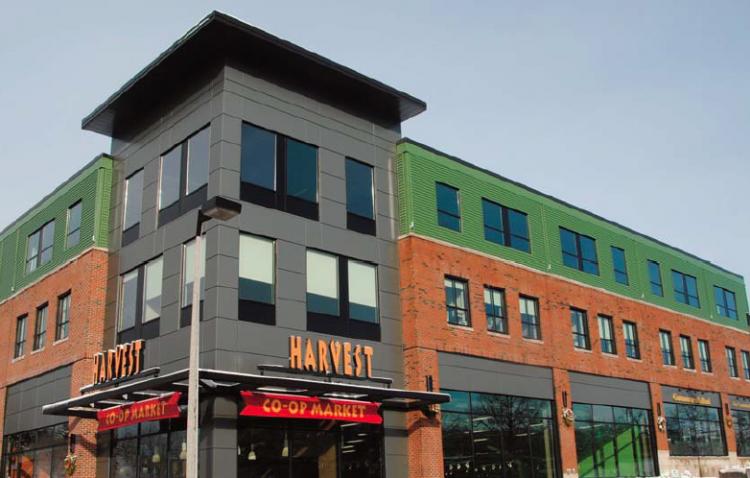The Earthy-Crunchy Generation Helped Change the Way We Eat

About 40 years ago, I stood in an Allston warehouse looking into a cardboard box of gritty potatoes. This is where we get groceries? A vegetarian boyfriend and the book “Diet for a Small Planet” had led me to this industrial building not far from the Mass Pike. Instead of well-lit displays of waxed fruit and Wonder Bread, the tables at the Boston Food Co-op offered unprettified carrots, greens, and other produce displayed in the boxes and crates they had been shipped in.
This scene came back to me last week when news spread that Harvest Co-op Markets would be shutting down its stores in Cambridge and Jamaica Plain after struggling financially for years. Harvest traces its origins back to that Allston co-op, which was founded by BU students who were not interested in eating meat or supporting agribusiness.
But instead of mocking those Birkenstock-wearing lentil eaters, thank them for leading us away from a postwar diet of fast-food, iceberg lettuce, canned pasta, and ground beef.
Over the years, organic food and whole grains have gone mainstream. Massive food conglomerates have bought up the kind of small yogurt producers and organic farms co-ops used to support. Whole Foods bought up the competition and operates nearly 500 stores in the United States, Canada, and United Kingdom, including three stores within a 2-mile radius of the Central Square Harvest store. A busy HMart Korean supermarket sits across Massachusetts Avenue and a new mini-Target a few doors away sells wheat bread and brown rice. Today, it’s hard to imagine Star Market or Stop & Shop not carrying these products.
So, it’s no surprise that all co-ops saw sales level off and start to decline about five years ago, according to data reported this summer by a national co-op trade group. Of the group’s 146 member stores, 18 have closed in the last year and a half.
At the same time, 70 percent of existing stores saw sales rise in 2017. Birkenstocks are back in style. People are once again interested in where their food comes from and its impact on the environment. At BU, there’s a weekly farmers’ market on campus, a student-run publication devoted to food, and a vegan dining room. My students used to dive into doughnuts and cookies I brought to class. Now, they hardly touch them.
So, thanks Harvest Co-op for a job well done. I’ll miss your bulk spices, fair trade coffee, and community spirit. But your earthy-crunchy legacy will endure, on my plate and in my heart.
The Boston Globe
By Tinker Ready Globe correspondent, October 29, 2018
Tinker Ready is an adjunct professor at BU and a Harvest Co-op member for 20 years.







